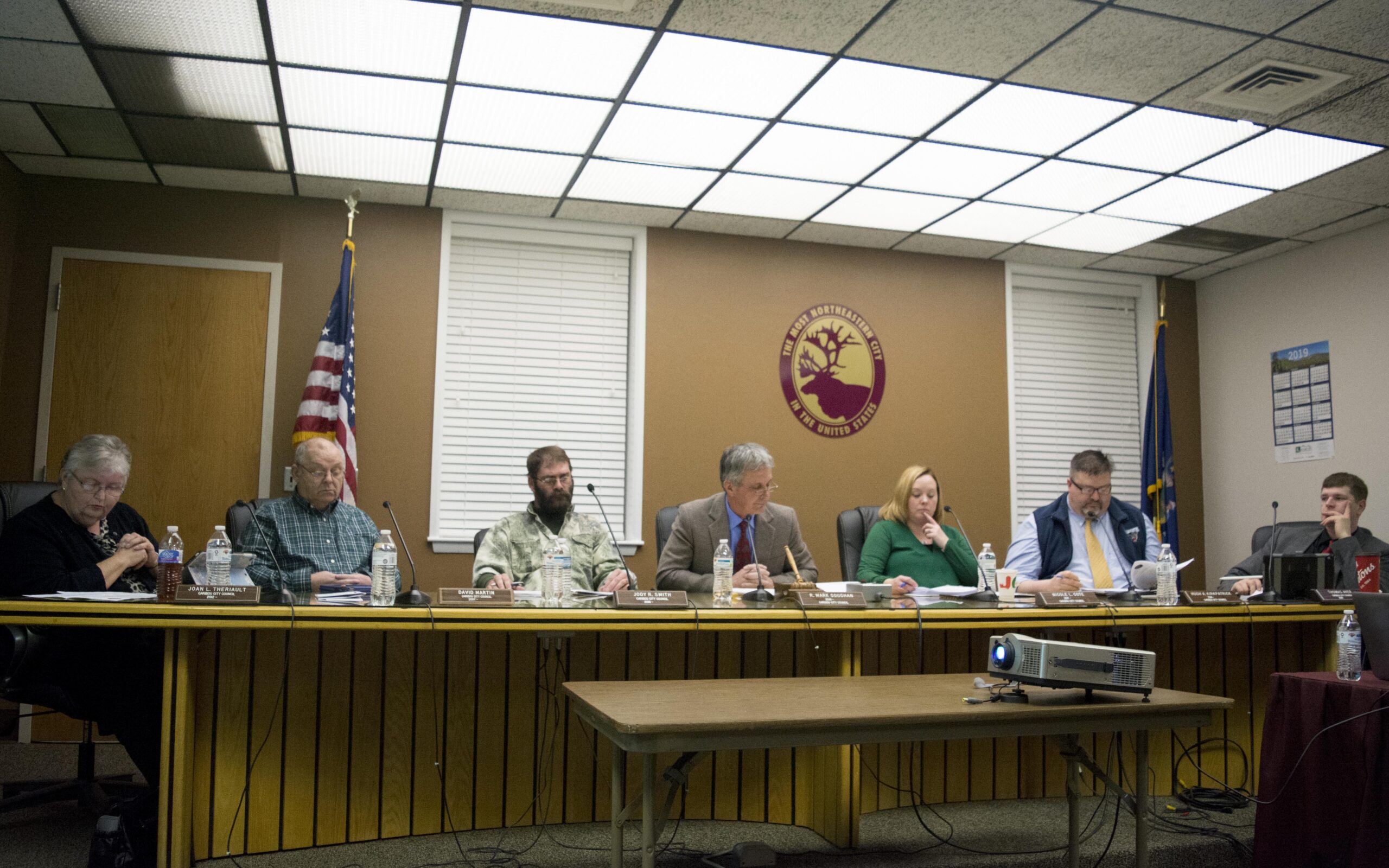
CARIBOU, Maine — Councilors voted five to two on Jan. 14 in favor of a resolution to continue pursuing construction of a new public safety building to house the police, fire, and ambulance departments under one roof on the former Birdseye vegetable processing plant property on Route 1.
The decision does not lock Caribou into funding the project, which Port City Architects estimates will cost roughly $10.5 million, but council approval authorizes City Manager Dennis Marker to seek funding and resources necessary to construct the facility. Local voters will still need to approve the final funding package during a future referendum.
Councilors initially were going to vote on the resolution in late December, but opted to table the item until two newly elected councilors could officially be seated for their input.
A citizens advisory committee examined a variety of potential options for the project, such as only building a police station, or constructing the facility in a different location. The majority of committee members, however, recommended building the new facility at the former processing plant on Route 1.
Marker clarified during the Jan. 14 meeting that the resolution the councilors were voting on would not award the project to any design or architectural firm, and that it would only indicate that council supports the type of building to be constructed and its future location.
Councilor David Martin said the Citizens Advisory Committee met eight times in a nine month period and “went through a lot of data proposals and what-ifs,” ultimately determining that since the fire department is eligible for sizable grants and tax increment financing money, it made sense to use those savings and combine the departments into one building.
Before making his motion to accept the committee’s recommendations, he also clarified that by passing the item, councilors were not authorizing expenditure of $10.5 million and that citizens would make that decision later.
Councilor Joan Theriault who, like Martin, also attended the advisory committee meetings, said that even though Port City Architects projected the construction could cost $10.5 million, there are grants available to the fire department that could potentially cover half of that cost.
“With a matching grant we could end up getting the whole building for the cost of a standalone police station,” she said. She also stressed that while a new police station is arguably a higher priority due to the existing station’s current condition, the ability to obtain a grant for the fire department could allow the city to improve headquarters for three departments for the price of just one standalone facility.
“We need to attract good cops in this town,” she said, “and we need a place to put them. And council is not making this decision, it’s the citizens who decide. If it doesn’t work, then we’ll go back to the drawing board and start again, but this decision should be made by people in this town.”
Mayor Mark Goughan said that while he agrees that the police station needs a new work space, he has concerns about the city’s decision to hire architects from Portland as opposed to local engineers, and also that he would like to see more “than just this one option” available, suggesting the possibility of seeing “how we could do this and not have to raise taxes.”
Councilor Hugh Kirkpatrick expressed concerns about what would happen to the old fire station after the new facility is complete.
Marker said that the plan, at this point is to put the fire station on the tax rolls and sell it as soon as possible.
“Who’s buying old fire stations?” Kirkpatrick asked. “That’s rhetorical. I’m not putting you on the spot, but what is the reality of any entity buying a used fire station?”
With no further discussion, councilors passed the resolution five to two, with Goughan and Kirkpatrick opposed.




